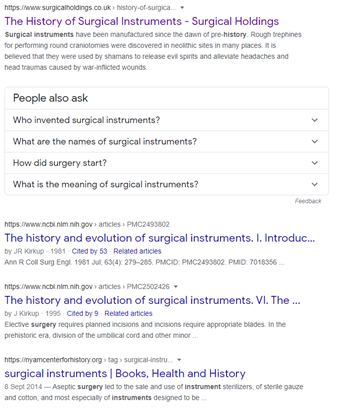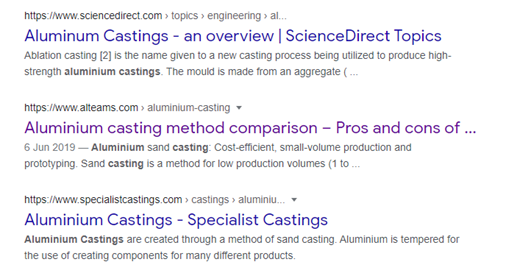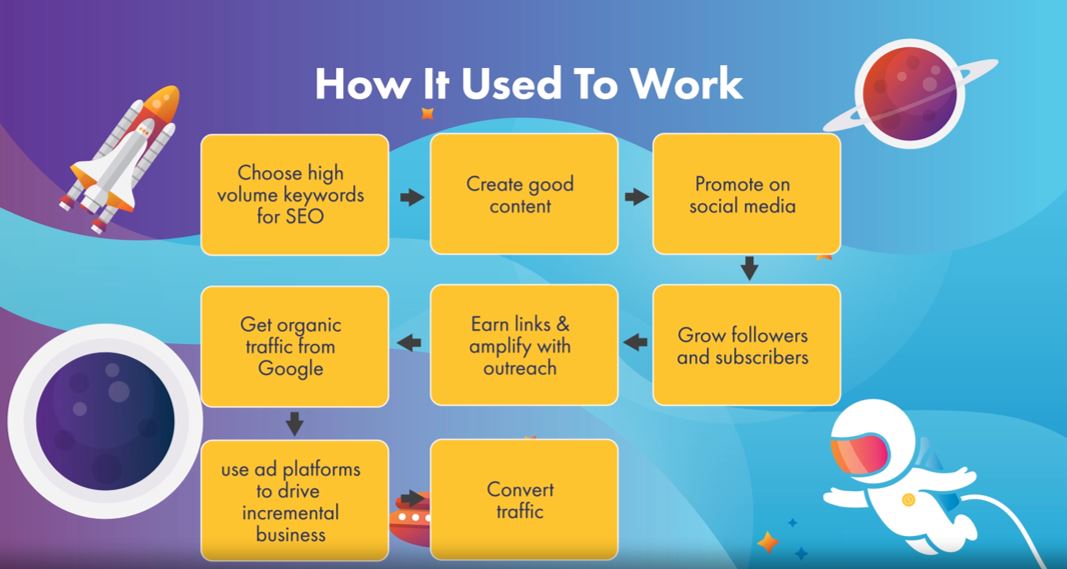Who Are You REALLY Competing With In Search Engines?
In business, two people will decide your success – the customer and the competition.
The majority of businesses are good at identifying who their customer is and how to keep them happy; otherwise, they can’t expect to stay in business for very long. But as the saying goes, you need to keep your friends close and your enemies closer.
Knowing who you’re competing against is just as important as knowing your customer.
.png?width=1101&name=Blog%20Social%20Posts%20(5).png)
An accurate understanding of your competitors’ behaviour will give you the power to intervene. Get it wrong, however, and you could lag behind while your customers spend their money elsewhere.
“But of course I know who my competitors are!” I hear you cry. “I can give you directions to their office, a complete lowdown of their prices and every new product they’ve released since 1999. What more can I do without working there myself?!”
You’re no fool for delving after those physical insights… but you could still be missing something.
What about your online presence? The nemesis lurking in the SERPs (search engine results pages) could be someone completely different – and in some instances, we can almost guarantee it is.
Misjudging your online competition is common and, unfortunately, it’s costly too.
Here’s how to make sure you know what your REAL search engine competition is and make sure they don’t steal your customer’s clicks.
Organic search drives 51 percent of all visitors to B2B and B2C websites
A study by BrightEdge[1] found organic search drives 51 percent of all visitors to B2B and B2C websites, trumping all other non-organic search channels.
Google is omnipotent and we know it. We all want to be on their good side and that’s pretty much what SEO is all about.
However, SEO isn’t just about being bedfellows with the world’s largest search engine and making your content irresistible to its algorithms (although, admittedly, that helps).
You need to understand who else is vying for Google’s attention, as well as how they’re doing it and how often they’re netting your customers by grabbing position one on the SERP.
You may have had the same bricks and mortar competitors for decades, but it only takes somebody with a well-optimised website to take your online market share. By understanding this particular niche of competition, you can build a strategy to make sure you claim those clicks instead.
First things first – compete for the right traffic.
It’s all good and well if your website traffic is going up and up, but if it’s irrelevant traffic, it’s essentially meaningless.
If your content is being found but not read (evidenced by high bounce rates and short session durations), your content is likely to be attracting the wrong people. They’ve been lured in with a keyword, but what they find after the click isn’t really what they’re looking for.
Take the term 'history of surgical instruments':

Position one is firmly held by a manufacturer of surgical instruments. Perhaps they get a lot of traffic as a result of that piece of content.
But look at what comes below. Lots of websites dedicated to history.
If you’re searching for this term, how likely are you to be in the market for a shiny set of medical tweezers? Are you more likely to be a keen researcher?
If it’s the latter, it really doesn’t matter that you’re netting the traffic of everyone below you. If they’re not looking to buy what you sell, that traffic will just come and go without a single, tangible result to show for it.
So, perform your keyword research with care. Create content around topics that are relevant to your industry and will be helpful to your ideal customer (if you haven’t done so already, creating buyer personas will help you to nail this process).
Are you confident that you’re targeting the right keywords for the right audience? Great!
Now let's see who's competing for the same.
Using SEO tools, you can build lists of your competitors’ top keywords and compare them against your own.
SEO tools like SEMRush are key to unlocking some lucrative insights.
When you’ve run your competitors’ website through the mangle and squeezed out their top-performing keywords, ask yourself:
- Are they competing for search terms that are valuable to your own business?
- Are they investing in PPC to drive traffic to those search terms?
- Is there a gap where they are ranking for relevant search terms and you’re not?
If the answer’s yes, then you’ve found yourself a real search engine competitor.
If the answer’s no, your strongest online competitor is likely to be somebody else.
Your most significant SERP competitors may not even be in your industry.
Ignore them at your peril, however.
If they rank higher than you on a desired keyword, they’re still your competition – even if their product offering isn’t related to your own.
Take this search for ‘aluminium casting’:

If you’re in the business of manufacturing aluminium castings, you may hope that this will drive some traffic to your site – and by the look of the search results, several folks in the same industry decided on the same thing.
However, the top result is from ‘ScienceDirect’. They’re not a manufacturer and they’re not looking to pinch your sales. Nevertheless, by taking that position and diverting clicks, they’re still your competitor in the SERPs.
Review your SERP competitors and take action.
Once you’ve established who’s muscling in on your valuable search terms, delve into:
- How they structure their content
- The number of referring domains they have
- Their grasp on SERP features like snippets and video results.
Once you understand how your competitors have moulded their pages for the SERPs, it’s time to optimise your own content and make a grab for those positions.
Remember, the search engines dictate how visible you are. Your page could be far more relevant to the search term than your SERP competitor, but your content still won’t come up trumps if it isn’t optimised to suit that search engine.
Don’t forget your PPC!
If you’re running paid search campaigns, you may find yourself competing for keywords where, again, the competitor doesn’t offer the same service.
It can cost you dearly to outbid them, all the same.
Where you’re pouring valuable budget into these keywords, it’s important to monitor them closely and see if they’re genuinely performing.
Ask yourself:
- Do the keywords convert visitors into customers?
- If not, is it fair to say that those searching for these keywords are interested in a different product?
If you decide that it’s still worth competing for these keywords, make sure your ad copy is explicit about what you are offering. You may then save yourself the cost of irrelevant clicks.
Some of your PPC competitors might actually be doing a poor job of their own keyword research and appearing for terms that are relevant to you, but not them. They’re not actually competing for the same customers, but by bidding on that keyword, they become your competition – relevant or not.
In this scenario, Quality Score is your friend.
Google says:
On a scale of 1-10, with 1 being the lowest and 10 being the highest, the Quality Score is Google’s rating of the overall user experience that your ads and landing pages provide when users search for your keyword(s).
Google wants its users to find relevant pages because it enhances their experience. So, when it comes to competing for search terms that are dotted with irrelevant ads, they’re on your side. They want the most relevant page to be at the top of the SERP and they’ll try to swing the auction to make that happen.
The following factors affect your Quality Score:
- Expected Click-Through Rate (CTR): How likely is someone to click your ad when Google serves it for the keyword they type in?
- Ad Relevance: Does the ad make sense to appear when someone searches for a particular keyword?
- Landing Page Experience: Does the information on the landing page correspond to what the ad is offering, and vice versa?
When your paid SERP competition is heating up and your keywords aren’t performing as well as you’d hope, working on your Quality Score can help you to sharpen your edge.
Want to delve deeper into what your competition are up to?
We can help you to learn your competitors’ secrets (without investing in SEO tools or paying for a full audit) with a FREE digital marketing competitor report.
Your report will show you:
- How and where your competition is advertising
- How you compare to them in Google search
- Which keywords your prospects are using to find them and not you
- What your market share is compared to theirs.
With this valuable insight, you’ll be empowered to boost your marketing, win market share and beat your competition.
Interested?
[1] https://www.brightedge.com/resources/research-reports/content-optimization






